White tea, as a member of the tea family, is gradually being emphasized by more and more tea lovers for its deep cultural heritage and unique health benefits. Compared with other types of tea such as black tea and green tea, white tea is favored for its natural and simple processing method, as well as its light and soft taste. However, many people still have many questions about the characteristics and types of white tea and its health benefits, especially about the coldness and warmth of white tea. In this article, we will delve deeper into the knowledge of white tea and answer common doubts about its properties.
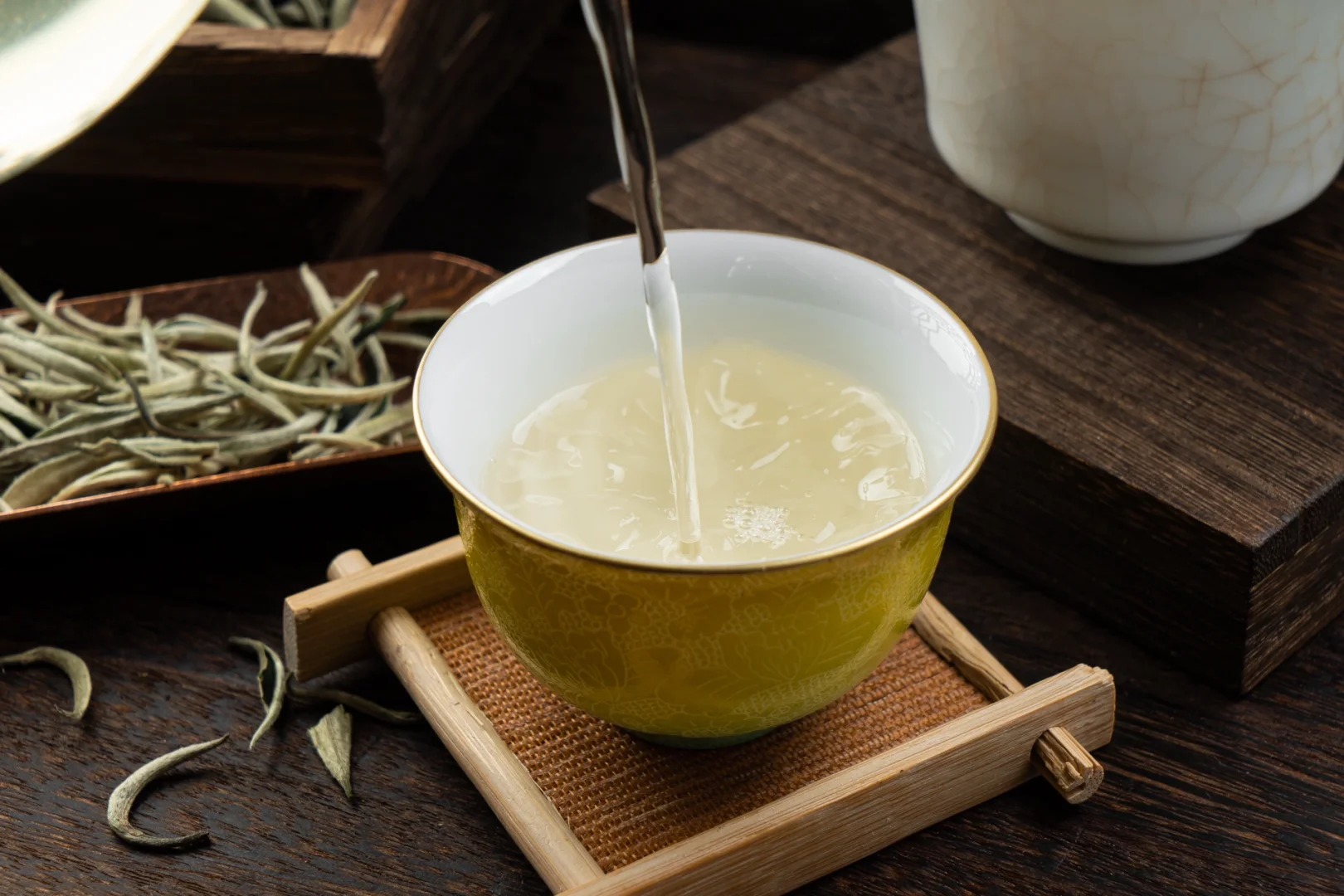
Definition and Origin of White Tea
White tea is a lightly fermented tea with a long history, mainly produced in the Fuding, Zhenghe and Jianyang regions of China's Fujian Province. As one of the most natural types of tea, the processing of white tea is very simple: after the leaves are picked, they are not kneaded and are directly sun-dried or lightly fermented. Because of this unique production process, white tea retains a large amount of the natural nutrients found in tea leaves and has high medicinal value and health benefits. White tea gets its name from its appearance, especially the “White Hair Silver Needle” variety, which has a layer of silvery-white fuzz covering the young buds. Other major varieties of white tea include “White Peony”, “Gongmei” and “Shoumei”, which have their own unique flavors and characteristics depending on the time of year when they are picked and the maturity of the leaves. characteristics.
Main types and characteristics of white tea
White Hair Silver Needle: The finest of white teas, the tea buds are plump and covered with dense white fuzz. Its soup color is clear and bright, and its taste is fresh and slightly sweet. Due to its demanding production process, it is produced in small quantities and is more expensive.
White Peony: Consisting of tea buds and one or two young leaves, it is shaped like a white peony, with an elegant aroma, light yellow soup color, and a fresh and mellow taste with a floral and sweet flavor.
Gongmei: made from the leaves of small-leaf tea trees, the leaves are more mature, with a distinct fruity and medicinal aroma, darker soup color, and mellow taste.
Shou Mei: mostly made from the larger leaves of the tea tree, relatively strong taste, aroma with grass and wood, with obvious medicinal value.
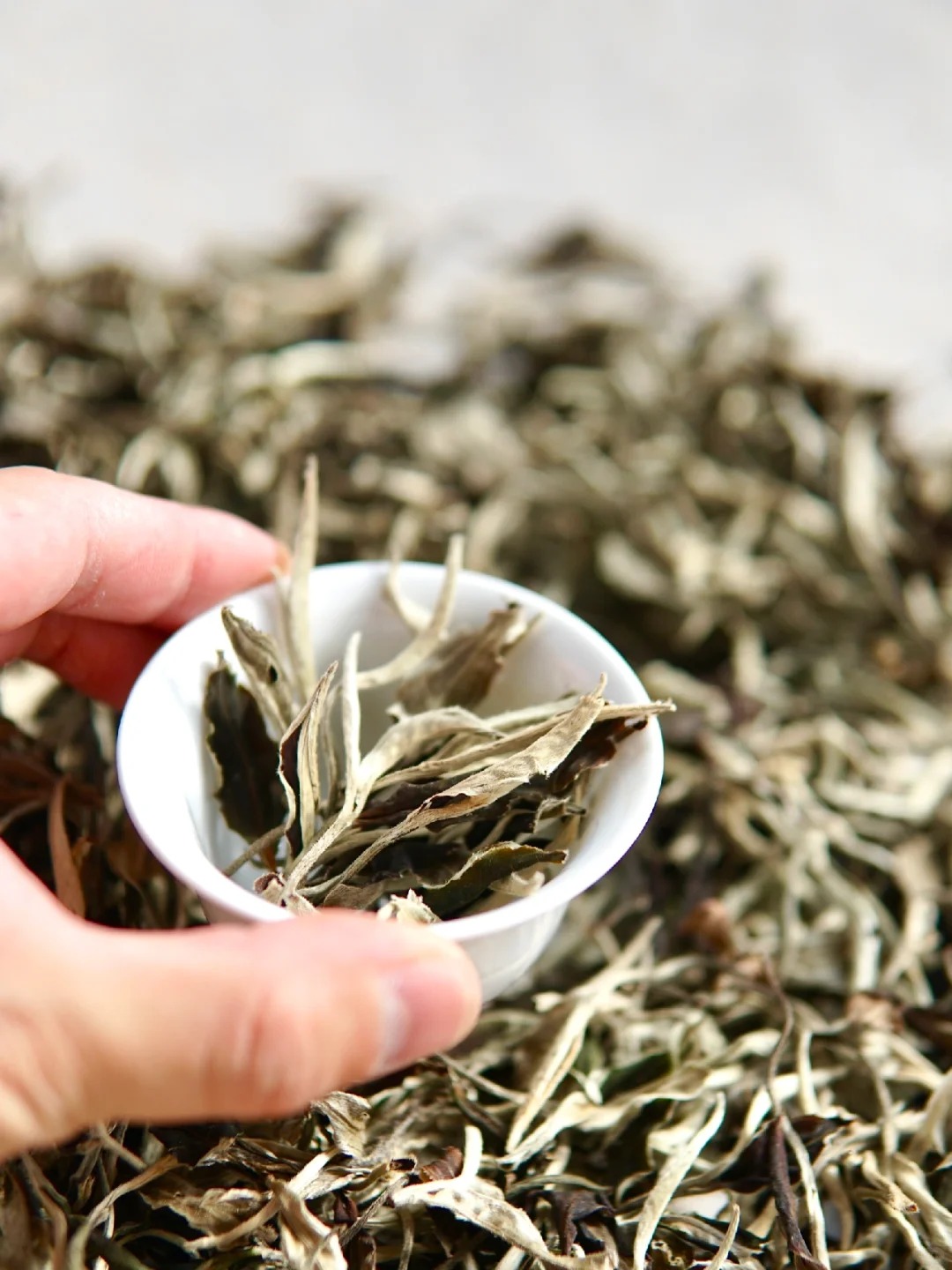
The nature of white tea: cold or warm?
The nature of white tea, i.e. whether it is cold or warm, has been a widely publicized issue. According to Traditional Chinese Medicine (TCM) theory, the “hot and cold” properties of foods and drinks can affect the body's internal balance, with cold foods helping to clear heat and detoxify toxins, and warm foods with the body and keeping it warm. Overall, white tea is a mild tea, between cold and warm, often categorized as cool tea. The coolness of white tea lies in the fact that it is lightly fermented during the production process, which retains more natural ingredients. It is especially suitable for drinking in summer and has the effect of quenching thirst, clearing heat and removing toxins. However, the coolness of white tea is more moderate than green tea, for cold body people, can also be consumed under appropriate conditions, especially stored for a few years of the old white tea, its coldness has weakened, and its nature of more tends to be mild or even warm.
It should be noted that the nature of white tea is also affected by its picking time, processing methods, and aging time. New tea is relatively cold, while the old white tea is stored for a longer period of time, after the natural aging, the tea nature gradually turned warm. This shift makes the old white tea have the effect of warming the stomach and protecting the body when consumed in winter.
Health Benefits of White Tea
Antioxidant and Age-Delaying: White tea is rich in tea polyphenols and catechins, which are antioxidants that can effectively scavenge free radicals and reduce oxidative damage to cells, thus slowing down the aging process. Long-term consumption of white tea helps to maintain healthy skin, improve skin texture and reduce wrinkle formation.
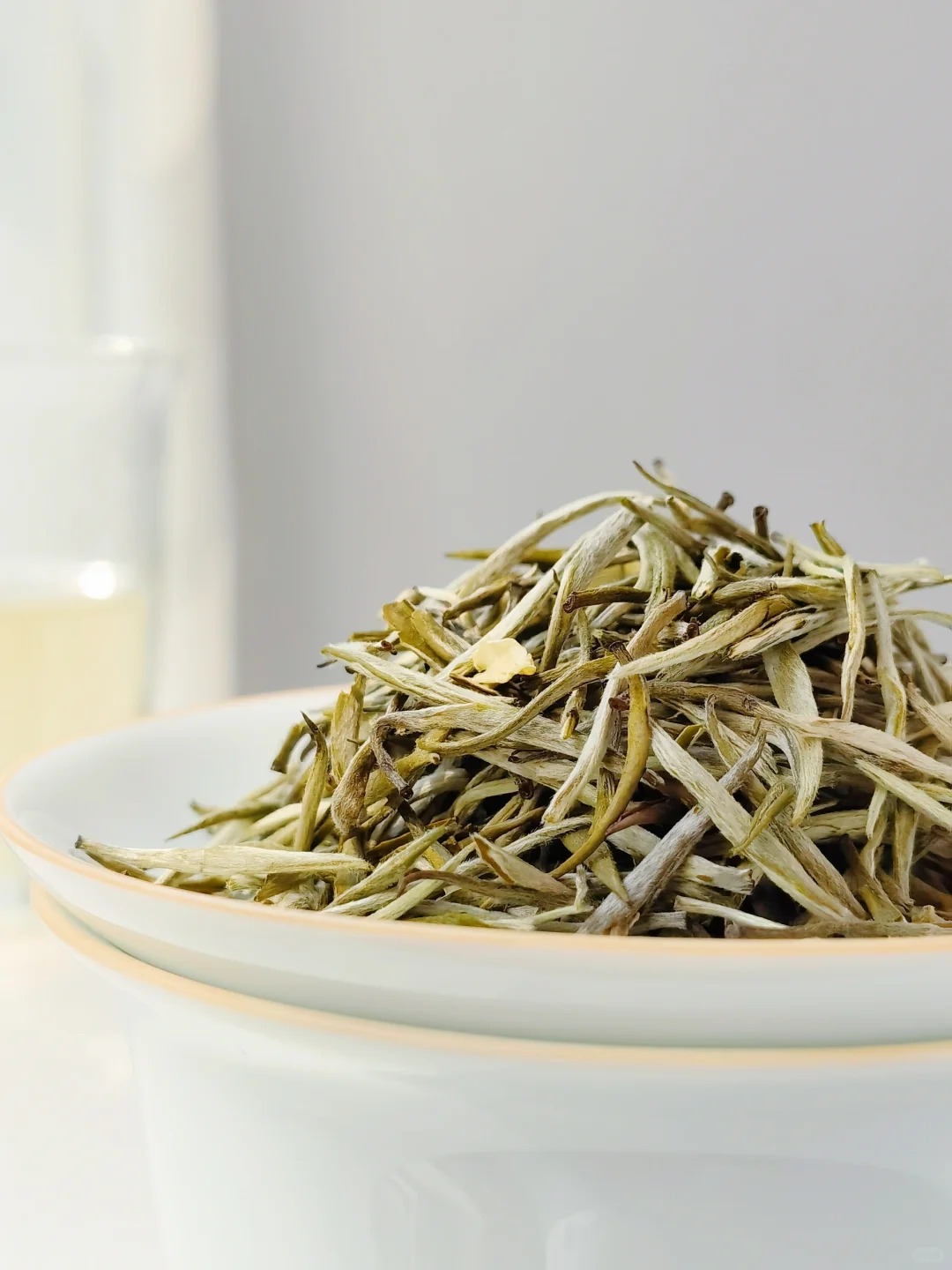
Improve immunity: The tea polyphenols in white tea have significant antibacterial and antiviral effects, which can help enhance the function of the immune system and improve the body's ability to fight diseases. Especially during the high flu season, moderate consumption of white tea can help prevent colds. Lower blood pressure and lipids: Studies have shown that the active ingredients in white tea can help lower blood pressure and lipids, preventing cardiovascular disease. For middle-aged and elderly people, white tea is a good choice for daily drinks. Promotes metabolism and helps weight loss: White tea is rich in catechins that can accelerate the breakdown of fat and promote metabolism, which helps to lose weight and maintain a healthy weight. Compared with other teas, white tea is low in caffeine, and long-term consumption will not lead to overstimulation or insomnia.
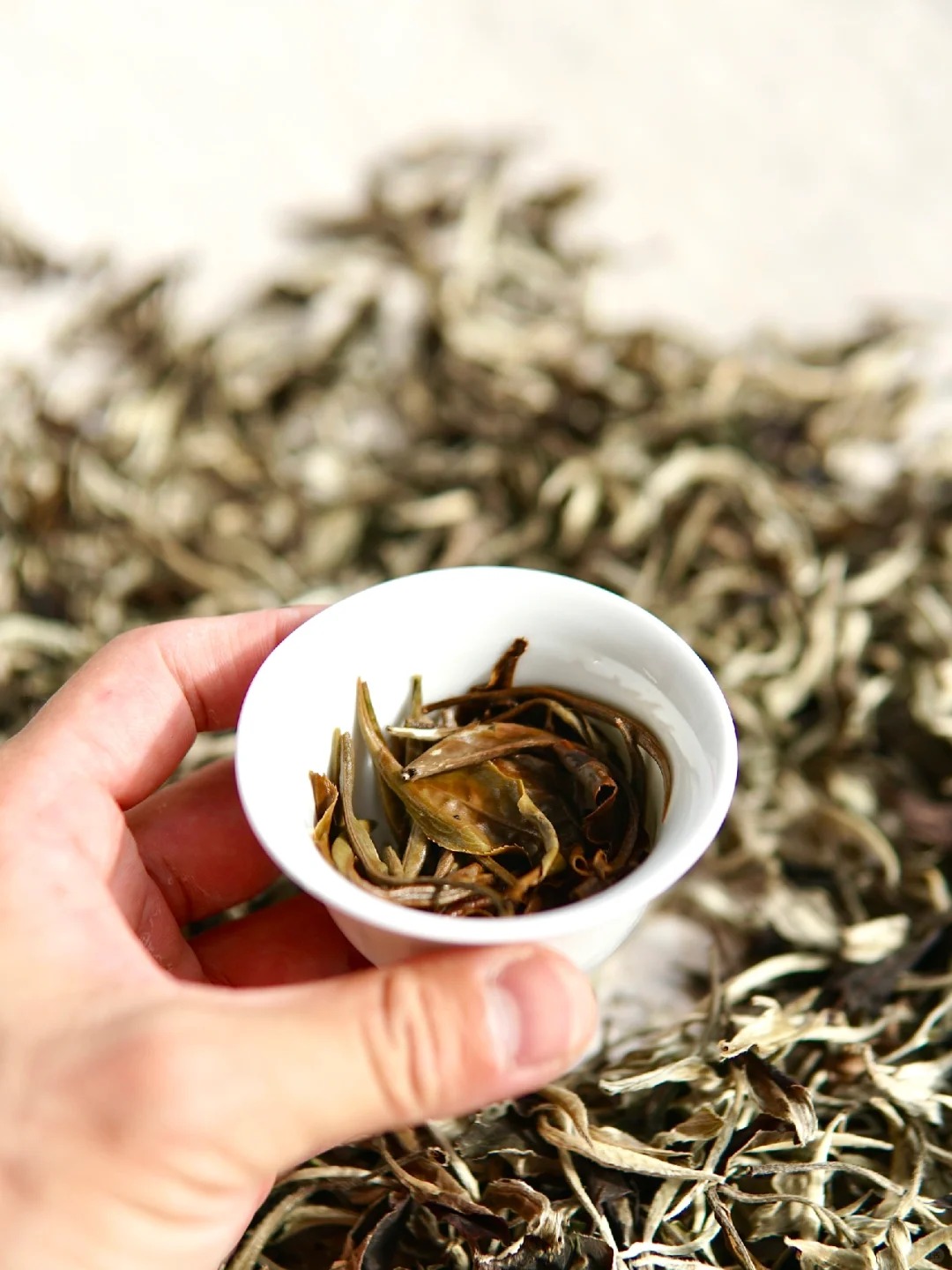
How to drink white tea scientifically
To maximize the flavor and health benefits of white tea, the correct brewing method is very important. Generally speaking, the temperature of the water used to brew white tea should not be too high. 85℃ to 90℃ hot water is the best choice, which can maximize the retention of nutrients and aroma in the tea leaves. In addition, white tea is suitable for multiple brewing, and each brewing time can be adjusted appropriately according to personal taste. For old white tea, it is recommended to use a slightly higher water temperature for brewing, which can fully stimulate the substances contained in the tea, bringing out a more mellow taste and medicinal aroma. At the same time, old white tea has a stronger stomach-warming effect and is suitable for drinking during the cold season. White tea is not only suitable as a daily drink, but can also be used with other ingredients, such as using white tea as a cooking seasoning, or making tea snacks, such as white tea cake and white tea cookies. These innovative applications not only enrich the use of white tea, but also add fun to healthy eating.
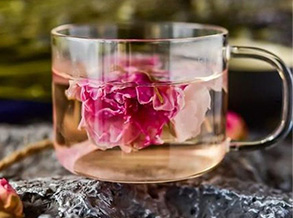
Summary
White tea, as a treasure of traditional Chinese tea culture, its unique taste and wide range of health benefits make it increasingly popular in modern society. Whether it is new or old, white tea can bring different tasting experience and health benefits to tea drinkers. Through proper brewing and moderate daily consumption, white tea can not only bring us the enjoyment of taste, but also a natural and healthy lifestyle. In the fast-paced modern life, a cup of white tea is not only nourishing to the body, but also soothing to the soul.
